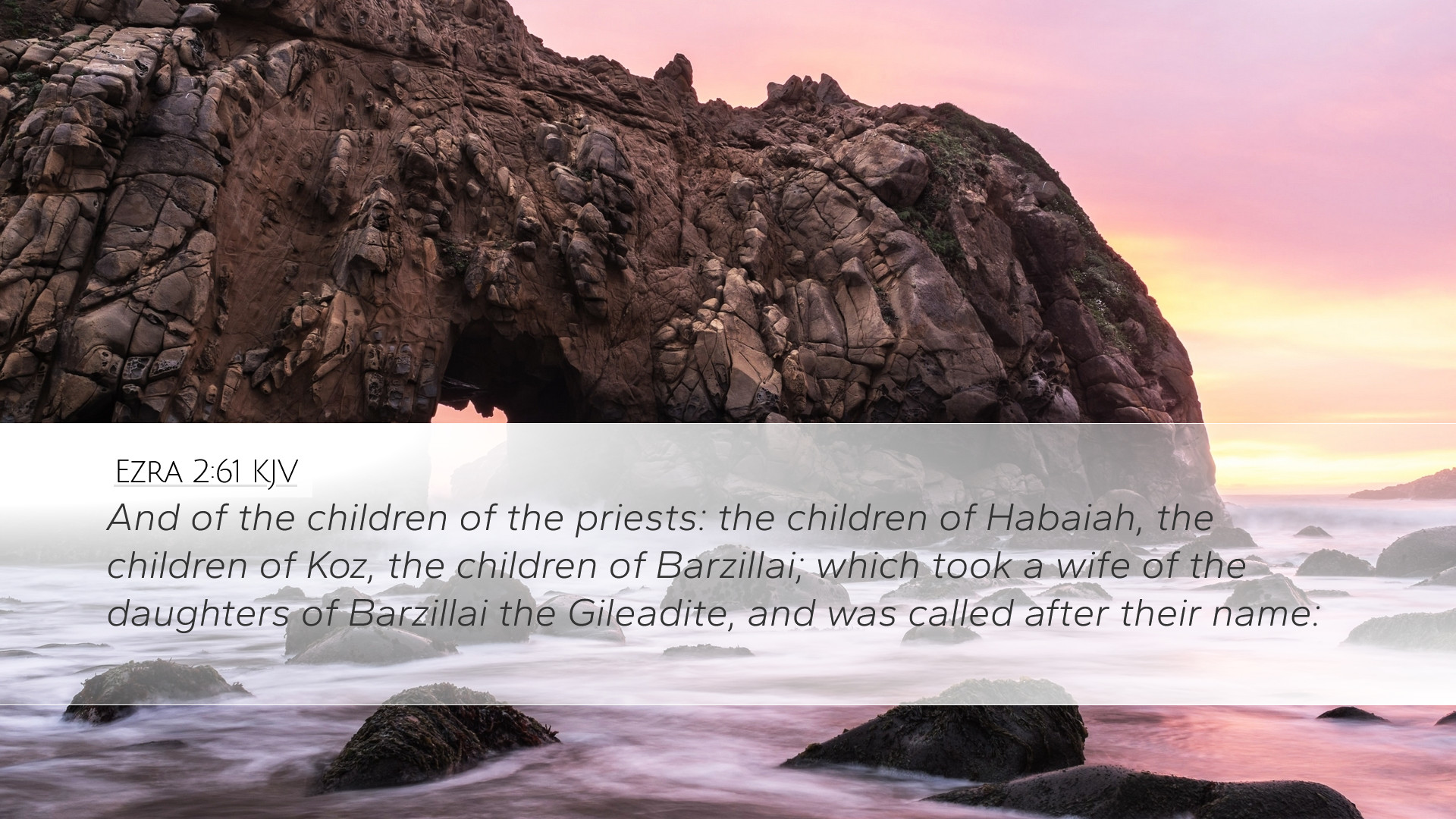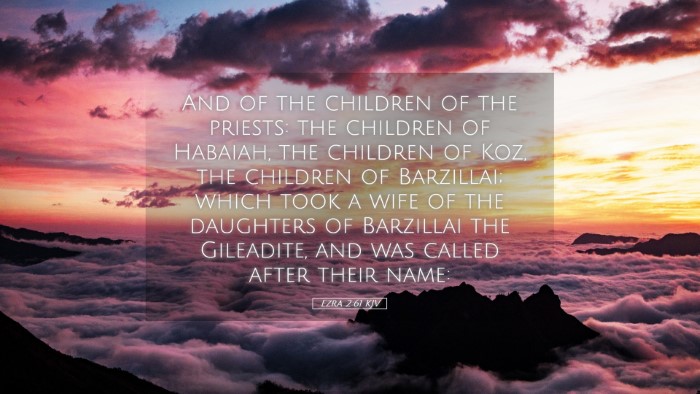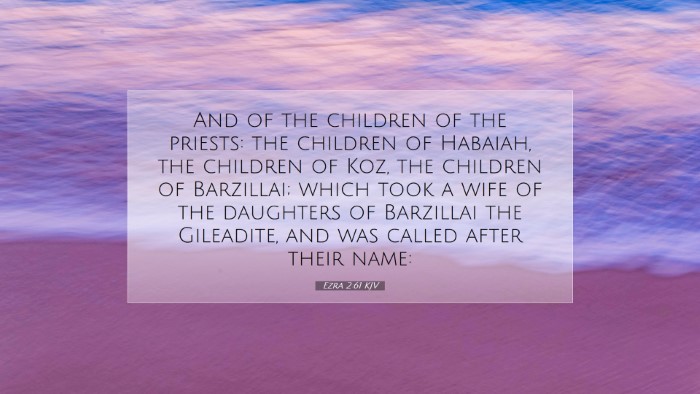Commentary on Ezra 2:61
Contextual Overview
Ezra 2:61 takes place after the Israelites return from Babylonian exile. As the Jewish people prepare to rebuild the temple in Jerusalem, this verse addresses a specific group of people — the descendants of the priests who are unable to prove their lineage.
Text of Ezra 2:61 (NKJV)
“And of the children of the priests: the children of Habiah, the children of Koz, and the children of Barzillai, which took a wife of the daughters of Barzillai the Gileadite, and was called after their name.”
Insights from Public Domain Commentaries
Matthew Henry's Commentary
Matthew Henry emphasizes the significance of genealogical records in the context of priestly lineage. In ancient Israel, the priesthood was based on descent from Aaron, and it was paramount for those claiming priestly status to substantiate their genealogy. Henry notes the mention of the children of Habiah, Koz, and Barzillai highlights the efforts of returning Israelites to restore their identity and religious observance after a long period of exile.
Albert Barnes' Notes on the Bible
Albert Barnes comments that the inability of certain priests to demonstrate their ancestry represented a serious issue in the restoration of the Jewish community. He remarks that the priests in question had married women from the Gileadite line, thus confirming their integration into both priestly and local families. However, this association may also indicate a blending of cultural practices that could lead to complications in maintaining the requisite purity and religious fidelity as prescribed by the Mosaic Law.
Adam Clarke's Commentary
Adam Clarke elaborates on the implications of this passage concerning the criteria for priesthood. He posits that those who could not validate their lineage were deemed unworthy to serve in the sacred ministry. Clarke also notes that Barzillai is a particular figure of interest; his connection to the priestly line and his marriage into the Gileadite family suggest a notable intersection of social and religious dynamics, which played a crucial role in the restoration of Israel's national identity post-exile.
Theological Implications
The theme of lineage and identity is critical in Ezra 2:61, as it serves as a reminder of God's covenant with Israel and His commitment to preserving a faithful remnant. The emphasis on genealogical distinction highlights the importance of recognizing one's heritage in relation to divine service.
Relevance to Modern Readers
This passage encourages contemporary readers to reflect on their spiritual lineage and identity in Christ, understanding that our worthiness for ministry is rooted not in mere ancestry but in a relationship with God.
Applications for Ministry
- Integrity in Leadership: Leaders must uphold the integrity of their spiritual lineage and ensure their leadership reflects biblical standards.
- Cultural Sensitivity: Just as the returning exiles navigated the blending of cultures, modern ministries must engage with cultural contexts without compromising theological integrity.
- Emphasizing Community: The communal nature of the return encourages pastors to foster a sense of belonging in their congregations, recognizing the importance of shared heritage in faith.
Conclusion
Ezra 2:61 encapsulates themes of identity, heritage, and the importance of authenticity in spiritual leadership. By examining the insights from Matthew Henry, Albert Barnes, and Adam Clarke, we can better understand the significance of this passage in both historical and contemporary contexts. As we explore these insights, may we cultivate a deeper appreciation for our spiritual roots and remain committed to serving God with integrity and authenticity in our ministries.


